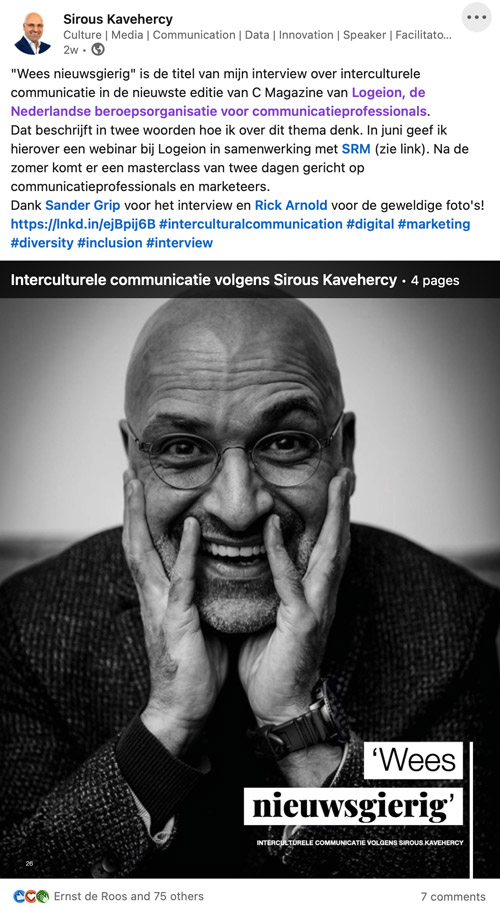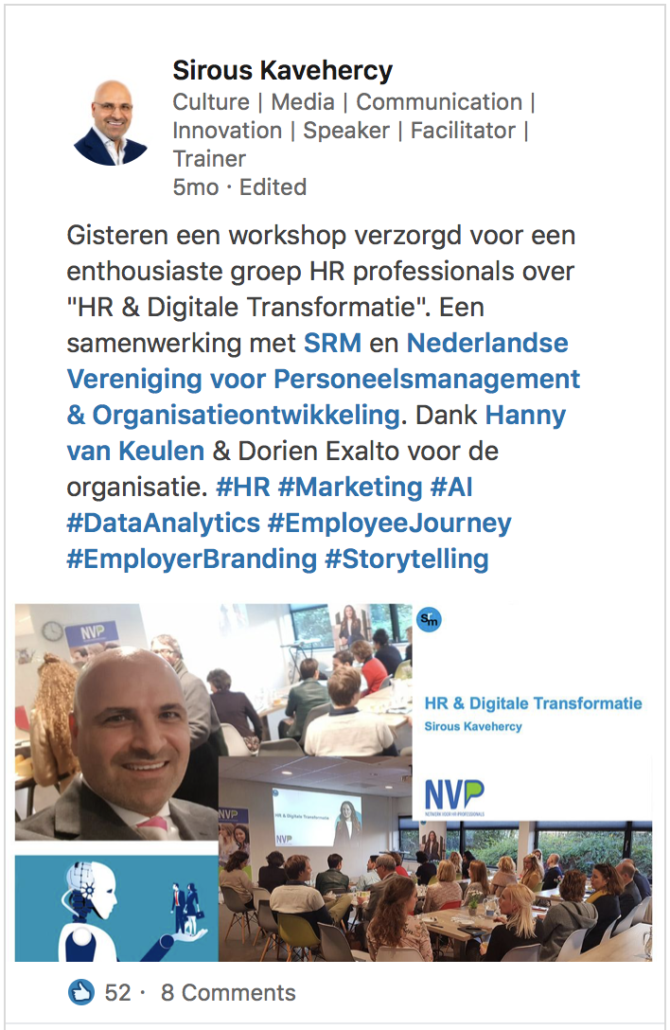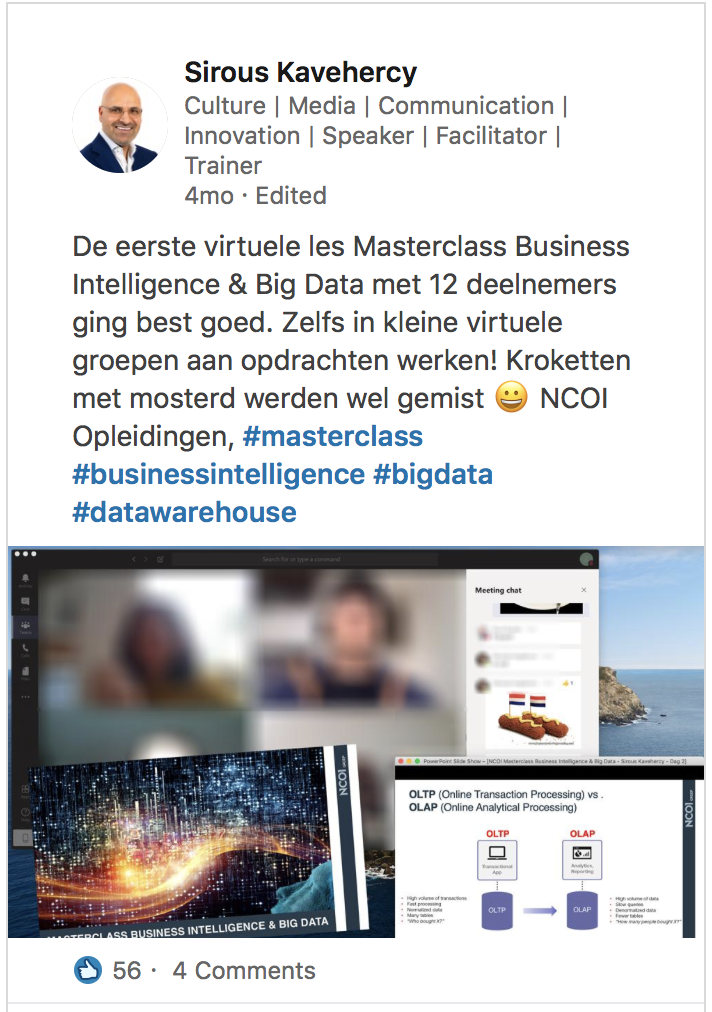Interview With Digital Hungary About Open And Free Internet
Last month I was invited to speak at Internet Hungary Conference 2013. Below is my interview with the website Digital Hungary about the importance of a free and open internet and our opportunities and responsibilities towards it. The original interview is in Hungarian and can be found here.
Below is a Google translation of the interview from Hungarian.
—————————–
The internet is not free! Reboot the internet!
Interview with Sirous Kavehercy, CEO of Tripylon Media

– Why does the world wide web require a reboot?
– I believe the Internet, as it was founded 40 years ago, was not meant to be where it is today. Internet was not supposed to become synonymous with major commercial brands as it is today, we were not supposed to be controlled and be limited with the possibilities and our choices.The worst part is that we are led to believe that we are free and that this is open and free internet, while it is really not. In my view, t’s time to rethink the way we use the Internet as there is no other way to change this status quo. The way internet is today is not the internet that the early pioneers had in mind. Therefore, rebooting the internet seems to be the way to go, as we do with computers when the software malfunctions.
– How can I do this?
– We need to change people’s attitude towards the world wide web. However, this can not be done by doing more of the same, as it is the case nowadays. It is our responsibility to show people that internet is not equal to Facebook and Google, there exists another world outside these walls. We go to Google to search the things we are looking for, we go to Facebook to connect and chat with our friends, we go to Tumblr and Twitter to share what we think and what we do. This is not all there is to Internet, there is much more, but we just do not realize it. I would like people to see that things could be different, you could do so much more on internet. However, you must act, otherwise this “tool” takes control of our lives and at some point will become our destinations, as it is for many today. We must think different!
– In his presentation at The Internet Hungary conference in 2013 Sirous mentioned that small groups of people trying to bring about change in people’s attitudes. How can they be successful with Google or Facebook being so dominant?
– There are lots of examples. Open source software is a good example of this and has existed for years. People who develop open source software are selfless and do not do this for money, they just want to do good. These open source developments have been the most stable and most reliable so far, Apache for instance. Many commercial companies use such software to run their business. A lot of the new technologies and innovations are coming out of this open source environment. In addition, this empowers people to take action. They have an idea, such as creating an affordable 3D printer, and they go and do it. Should we have waited for companies such as HP or Epson to produce something like this for consumers it would have taken us years. But creative people in the open source community built such 3D printer in The Netherlands. Their product is called Ultimaker (LINK https://www.ultimaker.com ) and is put together by people just like you and me. They did not know everything when they started but they got together from different parts of the world and did this, one group made the design, another group wrote the software and so on.Today they are market leading in the production of affordable 3D printers for consumers. There are plenty of similar cases, the power of this crowds is much more than any major company you can imagine.
– Do you think activities in such small communities will be the way of the future?
– People should realize they have a choice. Most of all believe that this is it. We are happy that there are free platforms that you can use, and spend time on, what else is there to do really? This is not true, there is a choice and we can make it, but we need to look at things differently. In the future, such communities of amateurs and enthusiasts will become larger and more structured and we can see that happening already. In the presentation I gave the example of a young guy who at the age of 15 used the internet to find an affordable test for Pancreatic Cancer. More and more people are going to figure out the good community initiatives and that they can have their say. However, we must not forget that the big brands and huge corporations have lobbying power. They will try to counter these initiatives, just like the music industry did with Napster. They did not succeed though, as more and more alternatives popped up. They eventually had to admit that they lost, they were forced to start thinking differently and change their business models. The gradual change is happening in many other areas as well. The more people realize they have a choice, the faster it will be.
– So in this “war” the key element is the Internet, where you can find all the information you need. However, governments are also involved in the operation of the Internet!
– Yes. Governments obviously want to control everything, even if they do not admit to this. However, they recognize that it is impossible to block everything and all websites. Even in countries like Iran and China, people will always find a way to sent out their message and connect to others on internet. These communities are very strong and support each other a great deal.
– History of the Internet has always appeared more and more waves. Maybe the dominance of open-source software is just a passing fase?
– Open source activities and communities are on the rise. So far, many of such open source products have been software based. The most famous example of an open source softwrae has been Apache web server, which is used by 70 percent of the computers and websites worldwide. Originally, Apache was a part of the Netscape software. Netscape was initiated in 1993 by a community of students but soon they commercialized their browser software. They finally lost the browser battle to Microsoft Explorer but Apache, however, survived, as the open source community decided to continue its development as they still do today. But open source is also moving into hardware arena. Today, 3D printers and developments alike are purely open source (open source community initiative). Then you have websites like Instructables (LINK: http://www.instructables.com) which is a practical knowledge sharing website, people showing others how to make things. People are becoming more creative, many are unemployed because of the economical crisis so they get together, come up with new ideas and they make things happen. The success of crowdfunding sites in the past few years is a clear sign of this happening. Communities help and subsidize one another to enable innovation.
– The free software and public funding is the key to success?
– Success is a relative term and depends on your circumstances and where you are grown up. But in the end the technological success and our future depends on what we believe in. Crowds can change things. In recent times we have seen a number of examples: Arab Spring and the Iranian opposition, who in 2009 has boosted the popularity of Facebook a lot. Iran appeared constantly in the news for over six months, and that gave Facebook free publicity and helped it win the race from Myspace which was much larger than Facebook at the time. This shows that the crowd is very powerful, but we have to start believing that.
– The World Wide Web at the moment is about sharing and liking. What do you think it will be in 10-20 years?
– I can not say that this is just a trendy thing that will suddenly disappear, because there are 1.3 billion users of Facebook. However, people will eventually begin to realize that there should be more to internet than social media. After only 5-6 years since Facebook launched in the Netherlands, recent studies show that social media causes severe mental health problems in some people. So it is not all so positive. You hardly read bad news on people’s posts. Users always share the good things and happy things. As a result, people who are already not happy with themselves feel even more depressed, because everybody else seems to be happy except for them. This is dividing our society. However, at some point, we realize that we went too far and we need to change things. There will be a point of normalization and alternatives will come. The open source community movement is gaining ground and that empowers people to create things and make things happen. That feeling will eventually prevail and gives us a different view on internet and social media.
– There is a country that is at the forefront of the open source community initiatives?
– The Maker Movement began in the United States, however, has already crossed the borders, for example, there is a place in Budapest, as well for they creative community to get together and make things (FabLab Budapest LINK: http://www.fablabbudapest.com – ed.). The expansion has a lot to do with people’s context. The Netherlands is traditionally a country that heavily depends on knowledge and innovation as a main export. People increasingly find their way into these communities, invent new products and business models. The U.S. continues to be very popular breathing ground for such activities, but Europe is catching up fast. In Western countries though, such as England, Germany and the Netherlands the movement has got a lot of momentum.
Sandor Vida







No Comments